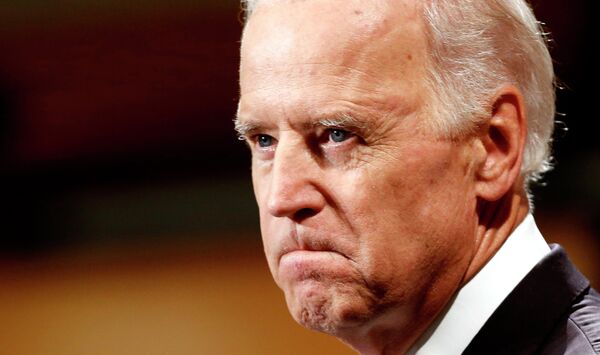The organization reportedly makes around $1 million a day just on oil sales from captured fields in Syria and Iraq, while its other less profitable, but still important streams of income are very diverse.
“ISIL’s primary funding tactics enable it today to generate tens of millions of dollars per month. Those tactics include the sale of stolen oil, the ransoming of kidnap victims, theft and extortion from the people it currently dominates, and, to a lesser extent, donations from supporters outside of Syria and Iraq" said David Cohen, the US Treasury Department’s Under Secretary for Terrorism and Financial Intelligence.
Treasury's David Cohen briefs on financing for ISIS: $1 mill/day from oil; $20 mill this year from ransom pic.twitter.com/pbxbdQhyc7
— Bill Press (@bpshow) October 23, 2014
Speaking to the press in late October, Cohen also outlined the latest US strategy to cut down the Islamic State's financial strength.
The complex plan included imposing sanctions on those who buy stolen oil from jihadists as well as the ones who donate to ISIL.
However, despite the fact that the petroleum purchasers and militant sponsors could be tracked, Washington doesn’t seem to be in much of a hurry to carry out these kinds of measures.
Isis, arriving in a fleet of brand new Toyota trucks. New. 100s of them. Who finances this group? Someone must. pic.twitter.com/dbmojNevAM
— Marcus Markou (@PapaSonsFilm) August 9, 2014
"The Turks… the Saudis, the Emirates, etc, what were they doing? They were so determined to take down Assad and essentially have a proxy Sunni-Shia war. What did they do? They poured hundreds of millions of dollars and tens, thousands of tons of weapons into anyone who would fight against Assad. Except that the people who were being supplied were al-Nusra and al-Qaeda and the extremist elements of jihadists coming from other parts of the world" said US Vice President Joe Biden.

His speech at Harvard University in October turned into a diplomatic scandal that was later excused away, but Biden's words only confirmed various reports that had been saying the very same things for years.
"You have to ask who is arming, who is financing ISIS troops. The keyword there is Qatar" said German Development Minister Gerd Müller in late August.
Müller didn’t explain why Qatar, a member of the anti-ISIL coalition, was the only country singled out among others that had been suspected of contributing to ISIL’s finances and arms, but Qatar has often been accused of conducting fundraising campaigns in favor radical militants in the region.
“The United States says it does not have evidence that the government of Qatar is funding the terrorist group now known as the Islamic State. But it does believe that private individuals in Qatar are helping to finance this group and others like it. And it thinks the Gulf state is not doing enough to stop this” says Lori Plotkin Boghardt, a fellow in Gulf politics at The Washington Institute. “Yet,” she continues, “the fundamental problem is that America's counterterrorism agenda sometimes conflicts with what Qatar perceives to be its own political interests.”
Most of ISIL’s wealth comes from the oil trade. The militants price petrol as well as its refined substances significantly below the market rate and reportedly sell most of its surplus to bordering NATO-member Turkey.
ISIS oil smugglers in #Turkey, and Turkey still let them to make money to kill innocents pic.twitter.com/N3co16euJz pics via @WashingtonPoint
— AnonyOpsDeAerial (@OpsDeAerial) November 4, 2014
“ISIL was selling oil at substantially discounted prices to a variety of middlemen, including some from Turkey, who then transported the oil to be resold. It also appears that some of the oil emanating from territory where ISIL operates has been sold to Kurds in Iraq, and then resold into Turkey” said Cohen.
The 510 mile long Turkish-Syrian border has been the source of income for many local communities on both sides for decades.
The poverty of the boundary area combined with the corruption of frontier guards has turned oil smuggling and distribution into the most lucrative business in the region.
Ankara consistently denies the existence of large-scale illicit trade schemes, adding that it keeps strengthening its border patrol and investigates cases of smuggling, but reports suggest that underground business there is alive and well, bringing profit to everyone involved.
All in all, despite the ongoing US-led anti-ISIL coalition, some of its members are still interdependent on the self-proclaimed caliphate economically and/or politically, and while there are benefits from such co-operation, the fight against the Islamic State could take years to finish.




